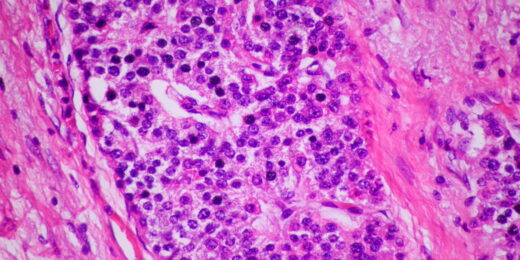Michelle de Haaff is no stranger to the startup world, having served on the founding teams of several over the past 25 years. But the best way, she said, to launch and scale health care innovation is by empowering entrepreneurs to understand and innovate around unmet needs.
De Haaff manifests this philosophy through the Emergence program, a partnership between the Stanford Byers Center for Biodesign and the bioengineering department in collaboration with schools across Stanford, including the School of Medicine, the Graduate School of Business and the Ethics, Society, and Technology Hub. It aims to improve societal health by tackling the systemic root causes of disparities through innovation and entrepreneurship.
"We have a lot of brilliant people at Stanford University. Through Emergence, we support the innovation process, operational skills and network needed to bring all of that intelligence and curiosity to bear in the health market," said de Haaff, an Emergence co-instructor.
Emergence comprises some 100 experts, serving as speakers, advisors or mentors, that guide how to identify societal needs and carry out the entrepreneurial process, according to de Haaff.
In its three years, the program has helped many students get their innovations off the ground and into the real world. For instance, Stanford Business and Public Policy graduate student Sebastián Espinoza started his social venture through the Emergence Accelerator program to tackle mental health complications during parenthood -- a common issue for growing families -- by offering peer support and health professional guidance to Spanish-speaking families during the pregnancy and postpartum stages. Other students have focused on alleviating hearing loss in Medicaid-supported children and panic attacks in students who often can't afford mental health care.
"The Emergence program inspires, educates and supports the next generation of innovators to improve health outcomes by going after systemic drivers of health, such as food and health care access," said Emergence executive director Narges Baniasadi, PhD, who co-founded the program with Jennifer Cochran, professor of bioengineering, in 2020.
Scaling up
One of Emergence's offerings is the Biodesign and Technology Entrepreneurship for Societal Health course. The class trains students to evaluate unmet needs in their chosen community, ideate solutions to the unmet needs, bring products to market, and set up and run a company that delivers socially conscious products.
This class, taught by Baniasadi, de Haaff and Pedram Afshar, a co-instructor for Emergence, occurs in the winter quarter and is open to undergraduate and graduate students from all majors. The program administrators assign mentors -- faculty members and founders -- to each student, who receive a sample problem to solve or come up with one of their choosing. The mentors help the students conduct research on the selected unmet need.
If the solution meets certain criteria, it moves into the next phase -- the Biodesign NEXT program -- which provides funding and guidance to help participants create prototypes of their innovation. The Biodesign NEXT program, which has experiential components, can stretch for up to three quarters. Students' final presentations can serve as applications to Emergence's Accelerator program, which helps participants understand how to make a product profitable and how to get funding for a company. The Biodesign NEXT and Emergence Accelerator program are open to students for the winter and spring quarters.
In both the Biodesign NEXT and Accelerator phases, mentorship plays a huge role.
Ank Agarwal, a second-year medical student, participated in the Biodesign NEXT program to start a business to encourage people to exercise. Agarwal and his team -- which includes students from electrical engineering, mechanical engineering, bioengineering and biology -- developed Uplift, a social network of people over the age of 50 who need a little encouragement to start exercising. When users upload their selfie and workout results to a cloud drive, Uplift creators unlock images and text revealing the workout routines of users' loved ones.
"The idea is, inclusive community and starting off with welcoming or easy workouts is what people need to get motivated," said Agarwal, adding that the light competition is also a plus.
His team has been matched with eight coders and designers from the Biodesign Building for Digital Health class to help design an app that can be scaled up and made more user friendly.
Reaching out
Forty students have taken the societal health course and 23 fellows and their teams have completed the Accelerator phase in the past two years.
Espinoza, who became a father of two while studying at Stanford University, and Magdalena Ramírez co-lead a project currently in the Accelerator phase known as Mi Tribu, which in Spanish means "my tribe" and is inspired by an African proverb: "It takes a village or tribe to raise a child." Magdalena, who is a mom, struggled with mental health before and during her pregnancies. She knew she needed support, and it inspired her to launch an effort to provide that support to other women.
Espinoza and Ramírez created a digital platform to provide virtual, around-the-clock health care access and education while creating social support connections to decrease the high rates of mental health complications of Spanish-speaking families in Latin America and eventually the U.S.
Currently, Mi Tribu has impacted more than 500 families in Latin America by matching groups of 12 women in the same stage of motherhood with the support and guidance of a health care specialist through group chat and one-to-one video calls.
Users reported a 63% improvement in birth and newborn care preparation. Without Emergence's mentors, peer support and guidance, Mi Tribu wouldn't have gone so well, Espinoza said.
Now, Espinoza wants to scale-up the platform, aiming to reach 250,000 families over the next five years.
"The Emergence program not only provides guidance, it also supplies a cohort of classmates trying to navigate social impact and a successful start-up -- the same questions about the same problems -- similar to what we are building with Mi Tribu for parents," Espinoza said. "The support from peers and experts is invaluable."
Faculty or researchers interested in socially conscious businesses can get involved as a sponsor, mentor or partner of the Emergence program. University affiliates can apply to the societal health class or Accelerator program. Students from three classes -- two outside of the Emergence program -- can apply to Biodesign NEXT: BIOE 273, BIOE 141A/B, and MED 275B.
Photo: SFIO CRACHO






